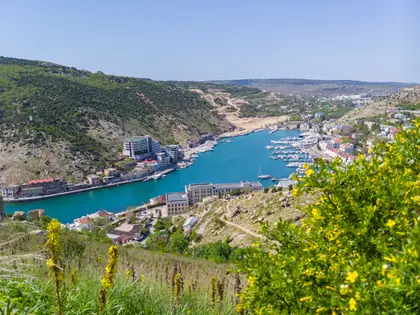Secretary of the National Security and Defense Council, Oleksiy Danilov, speaking on United News TV on June 7, said that the recent explosion at the Kakhovka hydroelectric power station, carried out by Russians, has resulted in a loss of fresh water supply to Crimea.
The Crimean peninsula’s water supply is fed by water from the Dnipro River, which flow through the North Crimean Canal, located in Nova Kakhovka.
JOIN US ON TELEGRAM
Follow our coverage of the war on the @Kyivpost_official.
“Russia’s action will make it impossible to supply water to Crimea in the near future,” Danilov said.
According to Danilov, water supply to Crimea will be impossible “for the next three, five, ten years, until this dam is rebuilt.”
In order to shed light on the potential risks associated with water supply to Crimea, Kyiv Post reached out to Mykhailo Khorev, Ukraine’s former deputy minister of environmental protection and natural resources.
Khorev said that the situation in Crimea would revert back to its state when Ukraine cut off water supply through the North Crimean Canal following Russia’s occupation of the peninsula in 2014, but it won’t cause any drinking water shortages.
Khorev pointed out that between 2014 and 2022, water did not flow through the North Crimean Canal to Crimea. However, he highlighted that the Russian occupation authorities had undertaken specific reconstructions and utilized local water resources effectively during that time.

Massive Christmas Day Attack by Russia, Ukraine Reports
According to calculations, Crimea has sufficient water resources to meet the population’s drinking water needs. Khorev explained that Danilov’s comments likely referred to a period of three to five years after Crimea’s de-occupation to resume water supply through the North Crimean Canal.
“They made specific reconstructions, as we saw on the satellite images, and tried to make the most of local water resources. In principle, Crimea has water and according to all calculations, it is sufficient to provide drinking water to the population of Crimea,” Khorev said.
On June 6, the Russian occupiers deliberately detonated the Kakhovka dam, resulting in the destruction of the engine room and the station itself, making any repair virtually impossible. The explosion has caused an environmental catastrophe, leading to flooding of towns and villages as water from the reservoir surged. Evacuation measures have been initiated.
According to the Kherson Regional Government Administration, the flood level has reached 5.61 meters, leading to the flooding of 600 square kilometers in the Kherson region. The right bank is affected by 32 percent of the flooding, while the left bank accounts for 68 percent.
As a result, 20 settlements on the right bank have been submerged, and the disaster has impacted an estimated 2,629 houses. The police, rescue teams and volunteers have evacuated 1,999 individuals from the affected areas.
You can also highlight the text and press Ctrl + Enter






